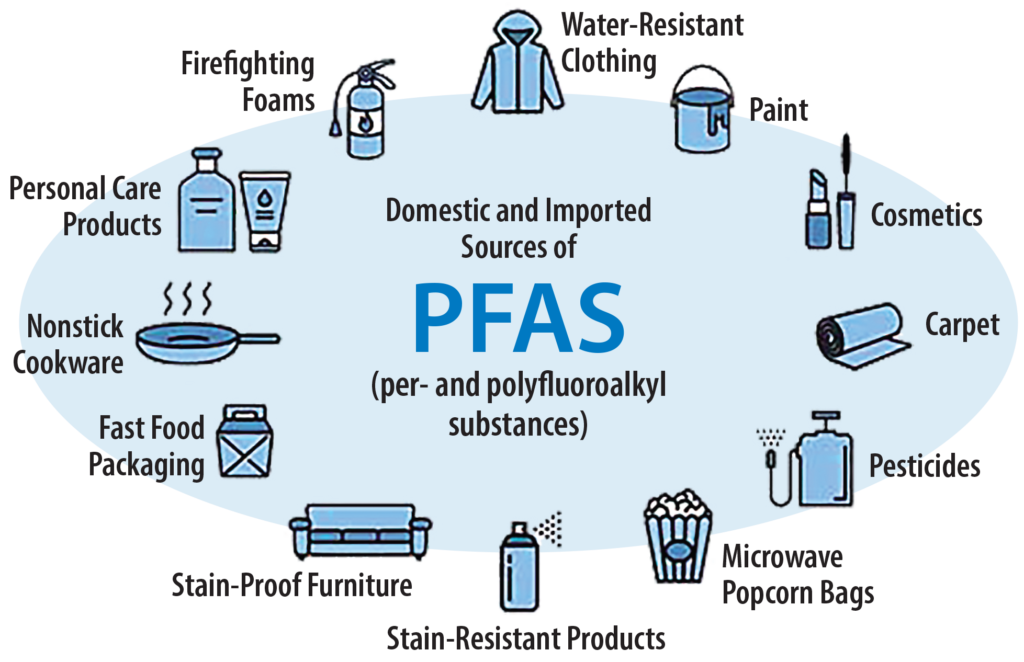
In 2021, the Washington State Department of Health (DOH) enacted legislation that requires Washington’s more than 2,430 public water systems to begin testing for substances known as PFAS (short for perfluoroalkyl and polyfluoroalkyl substances) in drinking water by December 2025. In 2024, the United States Environmental Protection Agency (EPA) announced a federal rule to regulate six PFAS in drinking water. Thankfully, your drinking water has been getting tested for PFAS even longer that those two mandates:
No PFAS Detected in North City Water District’s Drinking Water
North City Water District sources all of our drinking water from Seattle Public Utilities (SPU). Although PFAS were not previously regulated and routine testing was not required prior to 2023, SPU conducted testing in 2015, 2018, and 2023:
- In 2015, SPU tested its Tolt and Cedar River surface water sources for six types of PFAS with no detection.
- In October 2018, SPU tested the Tolt and Cedar water supplies using a more sensitive sampling method for 14 types of PFAS. Test results again showed no detection of PFAS.
- In March 2023, samples collected from the Cedar and Tolt treatment facilities finished waters in June, July, October, and December 2023 continued to show no detections for 29 PFAS compounds.
In 2024, North City Water District began testing SPU’s water at the point where it enters our system. In every test to date, your drinking water tested safe and protected from these contaminants. View Test Results Here >
What Are PFAS?
PFAS – short for perfluoroalkyl and polyfluoroalkyl substances – are a large group of man-made/synthetic chemicals that do not break down naturally.
PFAS began appearing in everyday products in the 1950s—from non-stick cookware and stain-resistant carpets, to firefighting foam—and have been building up in our environment ever since. Today PFAS can be found in the bloodstreams of people and animals, in a variety of food products, and in the environment.
Learn More About PFAS
To learn more about PFAS testing and drinking water regulations, as well as the measures that Washington state is taking to restrict PFAS in products, visit our state’s Department of Health website:
https://doh.wa.gov/community-and-environment/contaminants/pfas
You can also learn more about PFAS from the U.S. Environmental Protection Agency’s website:
https://www.epa.gov/pfas/pfas-explained
